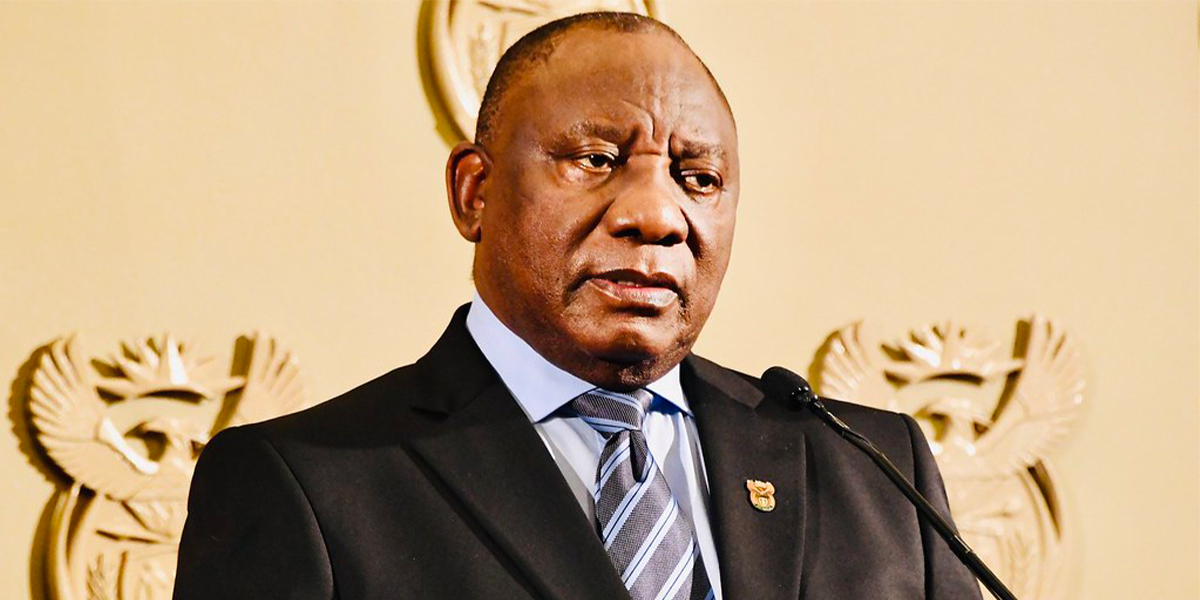News
Three Things President Ramaphosa Can Do Now to Kickstart a New Trajectory Scenario
South Africa's current reforms will not deliver the growth its citizens require because the government is unwilling to put the private sector at the centre of the economy. There is a simple truth that must be acknowledged before the country will escape its downward trajectory: There can be no economic development without unleashing the full potential of the private sector.

Former Director, The Brenthurst Foundation

Former Research Director, The Brenthurst Foundation

In some respects, the ANC has come a long way. On the eve of the transition as the Berlin Wall crumbled, it abandoned the dogmatic Marxism of its exile years and replaced this with what it called a “mixed economy” model.
This model, resembling its social democratic donors in Scandinavia, envisaged strong government regulation ensuring a growing private sector enabled socioeconomic advancement through the redistribution of profits in the form of social welfare.
While the economy was powering ahead during the resources super-cycle and tax collection was high, this model delivered an extraordinary welfare state — perhaps unprecedented in the developing world.
The effect of this social net was to place job creation on the back burner, so unemployment remained high despite redistribution.
This model was, however, fragile. When resource prices dimmed, the party ended, and South Africa was left with declining revenue, falling productivity — particularly among state-owned enterprises and in government — and burgeoning spending, leading to the financial crisis that we are presently in.
Although the way out of such a crisis has been demonstrated time and time again in the developing world — notably in East Asia — the ANC was unable to bite the bullet and free business from the regulatory entanglement that was holding it back.
There is a simple truth that must be acknowledged before South Africa will escape its downward trajectory: There can be no economic development without unleashing the full potential of the private sector.
And while reforms are announced, gift-wrapped in good intentions, the instinct that the state must control everything remains. So, when President Cyril Ramaphosa announces that the cap on private energy generation has been lifted to 100MW, he adds that a “grid permit” must be sought from the notoriously glacial and statist Mineral Resources and Energy Minister, Gwede Mantashe, who inexplicably escaped being reshuffled.
Mantashe has days — until August 10 to be precise — to publish amended regulations allowing for the 100MW promise to be fulfilled. But even if he does this, he can still control private sector energy generation through his “grid permits”.
What is needed is for the state to do less, by opening up the space for private sector growth. Instead, on default, the state is inserted for reasons of relevance, agency and rent. Absent a change in this philosophy, at best the country might expect to muddle along; at worst, to descend down a populist hole.
And yet we know the following about high-growth economies that don't rely on single-commodity booms. Usually, these involve countries that have managed to escape the ideological and identity legacy of their history, taking the best out of it (education, infrastructure, insertion in logistics chains and markets) and leaving behind the worst (paternalism, racism). In so doing, they are able to play to their strengths, especially around geographic location and commercial relationships.
Instead of seeing business as a foe, they seek to establish business as a friend, drawing in capital and ideas, and linking with global value chains through multinational investors. As they plan and carefully prioritise, there is a balance between the need for aspirational hardware with a continuous focus on the development of human software through education. Their institutions are fit for purpose, run on commercial principles, where the bedrock and benchmark is competitiveness.
And those which have kept this process going through generations have set out a convincing narrative of development, reinforced by a record of delivery, not rhetoric. The more that was achieved, the more it has been invested in.
In Cyril Ramaphosa, the country has a president capable of understanding there is a need to pivot to reform so as to offer a new direction on politics and the economy. He should have a sense of the substance of the reform requirements, as above, of capital, ideas, talent, global links, institutional rigour and improving competitiveness.
But as could be seen in the cabinet appointments this past week, this direction is “subject to the collective”, to the baggage of the past, of race and ideology which has ensnared the economy caught, even before Covid-19 hit, in a low-growth, redistributionist trap. The only thing on which it has shot the lights out is spending, and not very well, since it has been mostly focused on consumption rather than capital projects.
Reform requires a political shift. So far, the ANC has proven incapable of reform given it is terrified, paralysed even, by the impact on unity within the party. Even its most progressive wing refuses to place business at the centre of growth and sees the solution being sourced from the state, via imposed regulations, actions, funding, incentivisation, etc, all if which are dictated by the rule of rent.
This is an ANC problem per se, and not just of elements within the ANC. For instance, the view that it was the strength of the Radical Economic Transformation faction holding back reforms is no longer valid given that the faction has retreated.

As such, there are effectively three scenarios for South Africa, in that of a rapid descent into populism and failure, the president attempts to shore up his left flank by doubling down the narrative of inequality while upping the ante on state-driven economic actions. As the economy declines, violence increases, racial redistribution measures are ramped up including nationalisation, democracy is rapidly undone, and skills and capital haemorrhages fuel further radicalism. This is too a well-thumbed playbook of post-liberation African governments, and some in Latin America, well within the wide moral and ethical boundaries enjoyed by the radical populists.
A second, typical middle-road “muddling along” scenario, is the current trajectory of the Ramaphosa government. While reforms are often talked of and even publicly announced, they are seldom implemented as a treacle-like bureaucracy, ideologically backward ministers and a weak state capacity grind the good intentions to dust. It's a slower journey than that of populist collapse, but ultimately the same destination, reducing eventually the South African economy to a feudal trading system where a small, wealthy politically connected class extracts rents as the private sector all but disappears.
There is inevitably a third, more hopeful, scenario where Ramaphosa and those in the ANC elite that support him, having stared into the abyss of anarchy and economic disaster during the recent riots and looting, chart a new political and economic course. To achieve this, he will have to get away from outlining vague action plans and multi-step processes, dependent on so-called “compacts” that rely on kumbaya moments of rainbow togetherness for the government to excuse its policies, but actually man up to the reality of our current destination, own the policies and do stuff — that's called leadership, and is exactly what he's there for.
Recognising that without growth development is impossible, here are three things for the president to do by the end of this year to kickstart a “new trajectory scenario” without waiting on anyone else:
- Remove all regulatory obstacles and permits to allow private power production to flourish.
- Reduce the number of regulatory steps to establish any business to just three, with applications available online and response time limited to 30 days failing which the application is deemed to be successful.
- End the imposition of collective bargaining agreements on non-parties and on low turnover businesses, removing this handbrake to growth and improving competition from new entrants.
The decades-long kicking of the can down the road is no longer an option. It merely places us on the road to failure, albeit at a slower pace than the out-and-out embrace of populism.
An apt analogy for the ANC's role in the economy is that of a referee who also wants to be a player, dictating the play, calling the shots, blowing up for infringements and occasionally scoring points, which they then share with fellow players of their choice based on their background.
That's a sure-fire way to lose a rugby match as it is a country.
This article was originally published by Daily Maverick.

